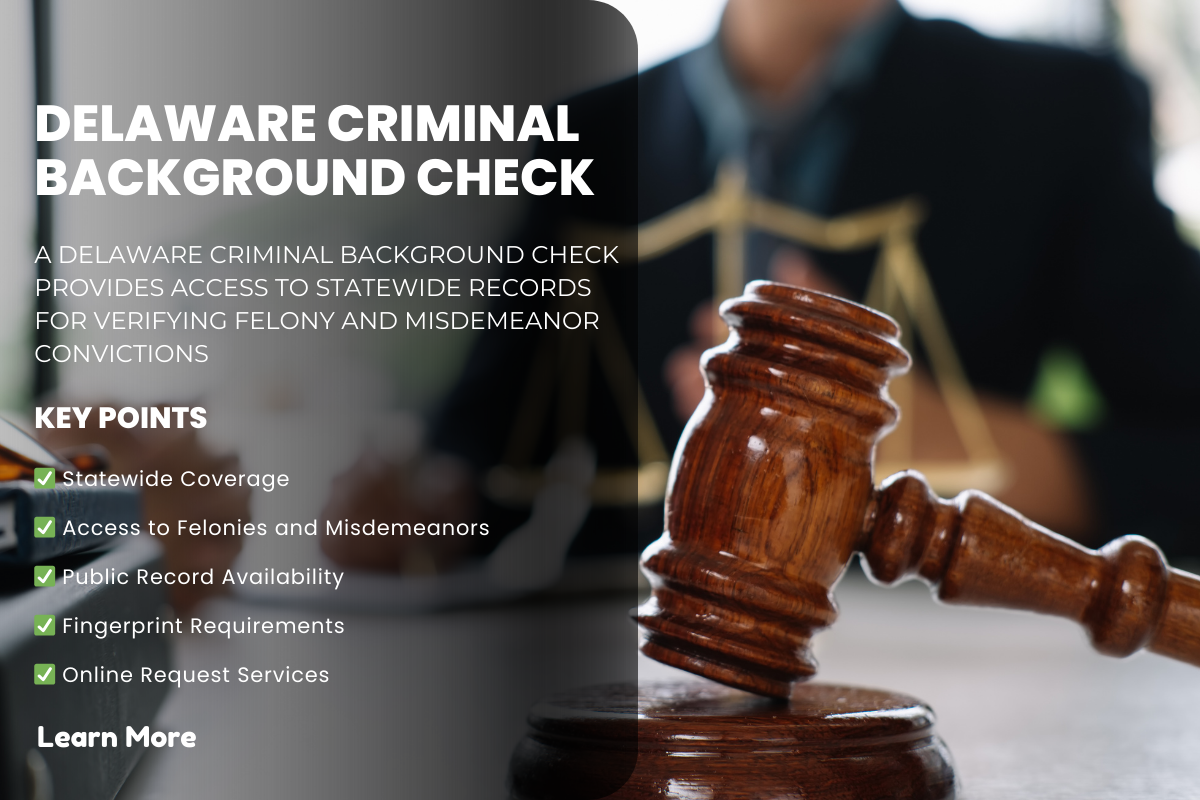The Importance of Criminal Background Checks in Delaware
Criminal background checks are an indispensable part of modern society, particularly in ensuring safety and security in various settings. In Delaware, these checks serve as a crucial tool for employers, landlords, and individuals who seek to make informed decisions based on an individual’s past. By delving into a person’s criminal history, these checks provide valuable insights that help mitigate risks and promote a secure environment.
Understanding Criminal Background Checks
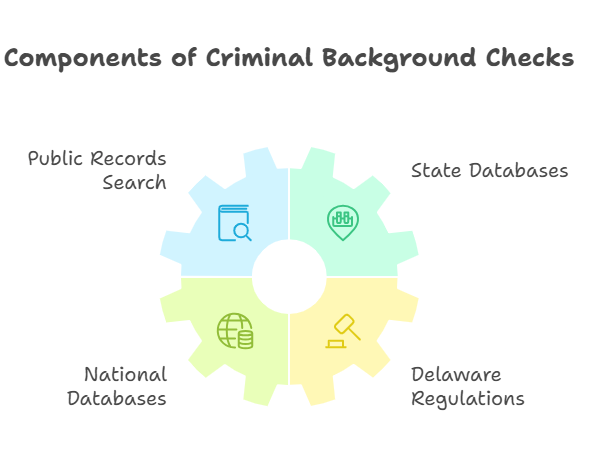
A criminal background check is the process of investigating an individual’s criminal record to uncover any past offenses, arrests, or legal issues. These checks can range from simple searches of publicly available information to comprehensive reviews involving state and national databases. In Delaware, the process is governed by specific laws and regulations to ensure that background checks are conducted fairly and responsibly.
Delaware-Specific Regulations and Practices
Delaware has established its own guidelines to ensure that criminal background checks are performed ethically and in compliance with state laws. The Delaware Fair Employment Practices Act (DFEPA) is a significant piece of legislation that prohibits discrimination based on certain criminal records. This act ensures that individuals are given fair opportunities in employment without being unduly penalized for their past, especially for arrests that did not lead to convictions.
Employers in Delaware must follow strict protocols when conducting these checks, such as obtaining consent from the individual and using the information gathered responsibly. These regulations are in place to balance the need for safety with the rights of individuals to privacy and fair treatment.
Table of Contents
ToggleWhy Perform Criminal Background Checks?
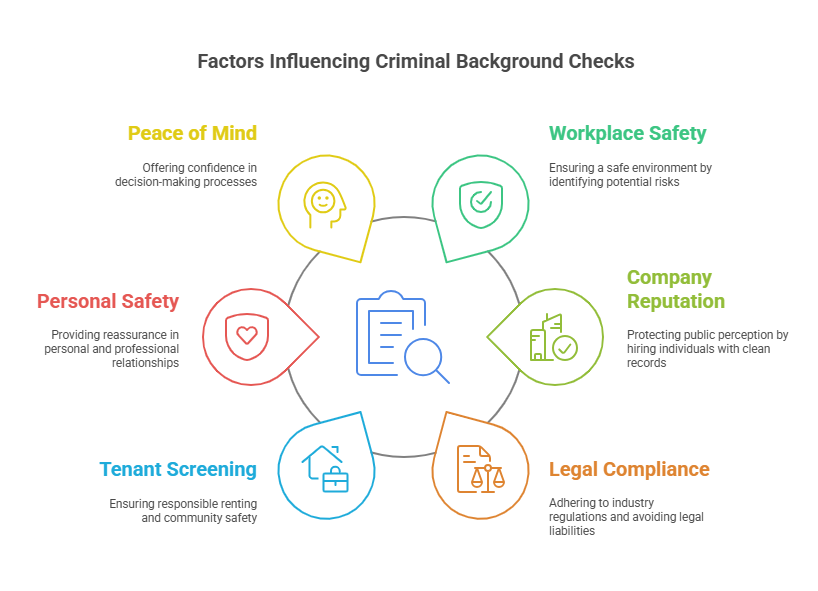
For Employers
Employers often use criminal background checks as a standard part of the hiring process. This practice helps them ensure they are making informed hiring decisions and maintaining a safe work environment.
- Ensuring Workplace Safety: One of the primary reasons employers conduct these checks is to ensure the safety of their workplace. By identifying any potential risks associated with hiring individuals with a criminal past, employers can take proactive measures to protect their employees and customers.
- Protecting Company Reputation: Hiring individuals with a clean record can help protect the company’s reputation. A single incident involving an employee with a problematic history can have significant repercussions on the public perception of a business.
- Legal Compliance: Certain industries, such as healthcare, education, and financial services, are required by law to conduct background checks. Compliance with these regulations helps avoid legal liabilities and ensures the company adheres to industry standards.
For Individuals
Individuals may also find it necessary to conduct criminal background checks for personal reasons.
- Tenant Screening: Landlords use these checks to screen potential tenants, ensuring that they are renting to individuals who are less likely to engage in criminal activities that could disrupt the community or lead to property damage.
- Personal Safety: Whether it’s hiring a caregiver, choosing a contractor, or entering into a personal relationship, conducting a background check can provide peace of mind by revealing any potential red flags.
- Peace of Mind: Knowing the criminal history of someone you are associating with can offer reassurance and help in making more informed decisions about personal and professional relationships.
Key Benefits of Criminal Background Checks

- Informed Decision-Making: Access to an individual’s criminal history allows for better-informed decisions, whether it’s hiring an employee, renting out a property, or engaging in a business relationship.
- Risk Mitigation: By identifying individuals with a criminal past, organizations can mitigate potential risks and avoid situations that could lead to harm or financial loss.
- Compliance with Laws: Performing criminal background checks in accordance with Delaware’s laws helps organizations avoid legal issues and ensures that they are operating within the boundaries of the law.
Common Scenarios for Conducting Criminal Background Checks
- Employment Screening: One of the most common scenarios for background checks is during the hiring process. Employers want to ensure they are hiring candidates who are trustworthy and pose no significant risk to the company or its stakeholders.
- Rental Applications: Landlords use criminal background checks to screen potential tenants, ensuring they maintain a safe and secure living environment for all residents.
- Volunteer Positions: Nonprofit organizations and other groups often require background checks for volunteers, especially those working with vulnerable populations such as children, the elderly, or individuals with disabilities.
In conclusion, criminal background checks are a critical tool in Delaware for promoting safety, security, and compliance. Understanding the significance, regulations, and benefits of these checks helps both employers and individuals make informed, responsible decisions that contribute to the overall well-being of the community.
Conducting a Criminal Background Check in Delaware
Understanding the step-by-step process of conducting a criminal background check in Delaware is crucial for both employers and individuals. This section outlines the necessary steps, documentation, and best practices to ensure compliance with Delaware laws.
Step-by-Step Process for Conducting a Criminal Background Check
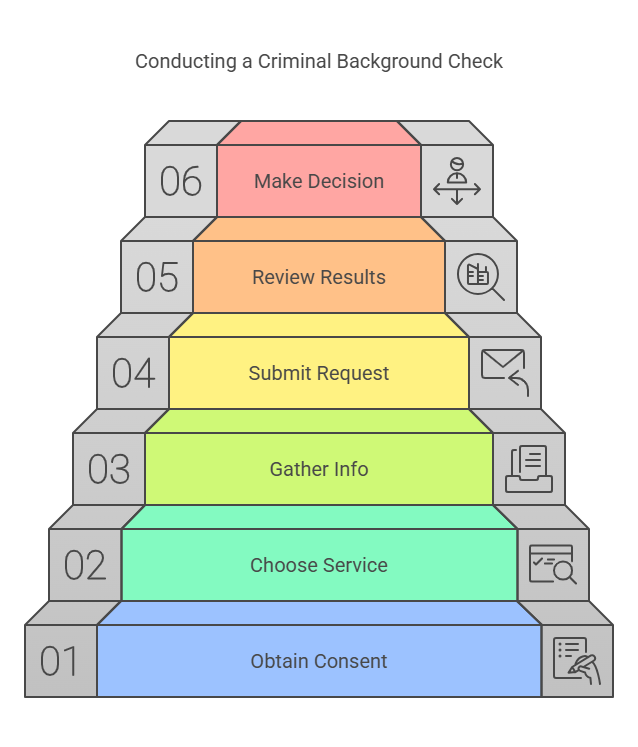
- Obtain Consent:
Before initiating a criminal background check, it is mandatory to obtain written consent from the individual. This ensures transparency and complies with legal requirements. - Choose a Reliable Background Check Service:
Selecting a reputable background check service provider is essential. The service should be compliant with Delaware state laws and capable of providing accurate, up-to-date information. - Gather Necessary Information:
Collect basic information about the individual, such as full name, date of birth, Social Security number, and any other relevant details. This information will help ensure the accuracy of the background check. - Submit the Request:
Once all information is collected, submit the request through the chosen service provider. This process may involve online forms, email, or physical submission, depending on the provider’s procedures. - Review the Results:
After the background check is completed, review the results carefully. Look for any criminal records, convictions, or legal issues that may be relevant to the decision-making process. - Make an Informed Decision:
Use the information gathered to make an informed decision. Ensure that the decision aligns with Delaware’s legal requirements, such as the Fair Employment Practices Act.
Types of Background Checks
- Criminal History Records: This includes information on arrests, convictions, and incarcerations.
- Sex Offender Registry Checks: To identify if an individual is listed on the sex offender registry.
- Employment Verification: Confirming past employment history and performance.
- Education Verification: Ensuring the individual’s educational qualifications are legitimate.
- Credit Reports: Sometimes used to assess financial responsibility, though this requires specific consent and adherence to the Fair Credit Reporting Act (FCRA).
Best Practices for Conducting Background Checks
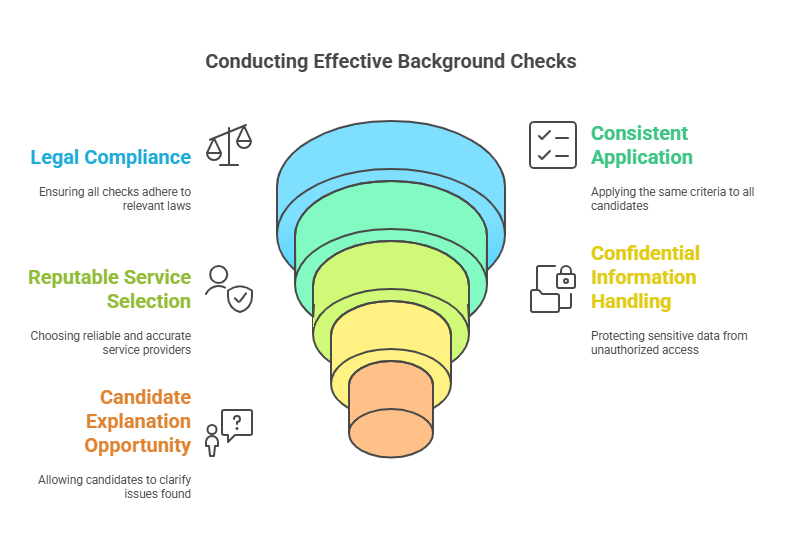
For Employers
- Stay Compliant with Laws:
Familiarize yourself with Delaware laws governing background checks, including privacy laws and anti-discrimination regulations. Ensure that your practices comply with the Fair Employment Practices Act and the FCRA. - Be Consistent:
Apply the same background check process uniformly to all candidates to avoid any potential claims of discrimination or bias. - Use a Reputable Service Provider:
Choose a service provider with a proven track record of accuracy and compliance with state laws. This minimizes the risk of errors and ensures reliable results. - Handle Information Confidentially:
Protect the confidentiality of the information gathered during the background check. Only share the results with individuals who need to know for decision-making purposes. - Provide Candidates with an Opportunity to Explain:
If a background check reveals issues, give the candidate a chance to explain or provide context. This demonstrates fairness and helps in making balanced decisions.
For Individuals
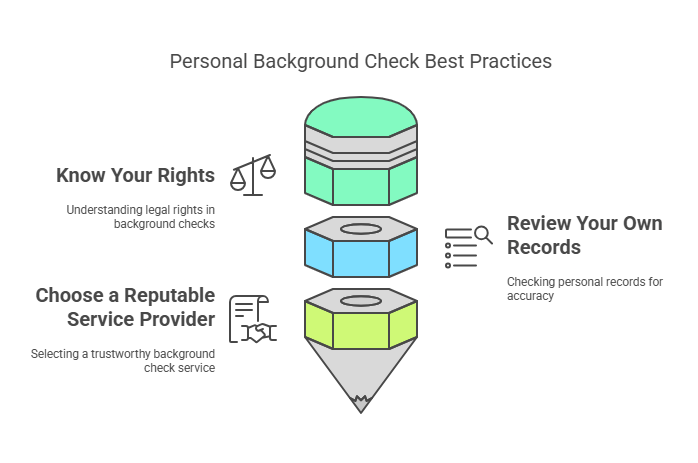
- Know Your Rights:
Understand your rights under Delaware and federal laws. You have the right to be informed if a background check is conducted and to consent to it. - Review Your Own Records:
Before applying for jobs or rental properties, consider obtaining your own background check. This allows you to identify and address any discrepancies or inaccuracies in your record. - Choose a Reputable Service Provider:
If conducting a personal background check, select a provider that adheres to Delaware laws and provides comprehensive, accurate information.
Highlighting Rapid Hire Solutions
Services Provided by Rapid Hire Solutions
Rapid Hire Solutions is a leading provider of background check services in Delaware. They offer a wide range of services designed to meet the needs of employers, landlords, and individuals.
- Comprehensive Criminal Background Checks: Access detailed criminal history records, including arrests, convictions, and incarceration details.
- Quick Turnaround Times: Rapid Hire Solutions is known for its efficient processing times, ensuring you get the information you need promptly.
- Compliance with Delaware Laws: The company strictly adheres to state and federal regulations, ensuring that all checks are conducted legally and ethically.
- Customizable Reports: Depending on the specific needs of the client, reports can be tailored to include only relevant information.
Comparing Background Check Providers
| Provider | Services Offered | Turnaround Time | Compliance | Pricing |
|---|---|---|---|---|
| Rapid Hire Solutions | Criminal, employment, education checks | 24-48 hours | Fully compliant with DE laws | Competitive |
| Provider A | Criminal and credit checks | 48-72 hours | Compliant with FCRA | Moderate |
| Provider B | Comprehensive background checks | 3-5 business days | Limited state compliance | High |
| Provider C | Basic criminal history | 2-3 business days | Compliant with federal laws | Low |
In summary, conducting a criminal background check in Delaware requires a thorough understanding of the process, adherence to best practices, and compliance with state laws. Utilizing services like Rapid Hire Solutions can streamline the process and ensure that the information gathered is accurate and reliable.
Delaware Criminal Background Check: Legal Aspects, FAQs, and Conclusion
Legal Considerations and Compliance Requirements
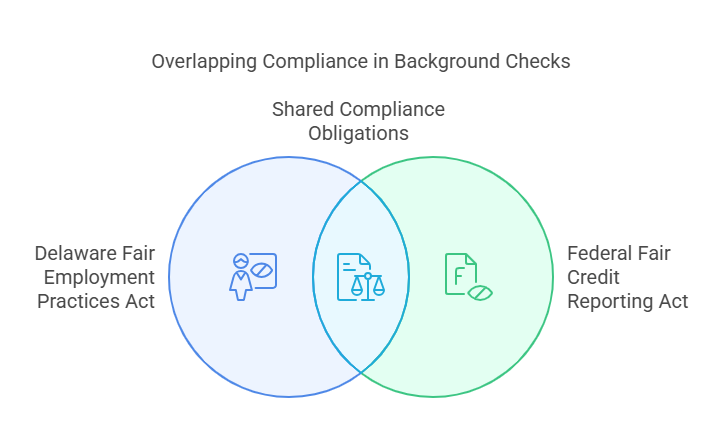
When conducting criminal background checks in Delaware, it’s essential to understand the legal framework that governs these practices. Delaware laws, along with federal regulations, outline the responsibilities of employers and the rights of individuals. Ensuring compliance with these laws helps prevent legal issues and promotes fair and ethical treatment.
Delaware Fair Employment Practices Act (DFEPA)
The Delaware Fair Employment Practices Act (DFEPA) plays a crucial role in regulating how criminal background checks are used in the hiring process. Key provisions include:
- Non-Discrimination: Employers are prohibited from discriminating against applicants based on arrest records or certain criminal convictions that are not relevant to the job in question.
- Individualized Assessment: Employers must conduct an individualized assessment when a criminal record is revealed, considering factors such as the nature of the offense, its relevance to the job, and the time elapsed since the conviction.
Federal Fair Credit Reporting Act (FCRA)
The Fair Credit Reporting Act (FCRA) also governs the use of background checks, particularly when a third-party agency is involved. Important FCRA requirements include:
- Disclosure and Consent: Employers must disclose their intent to conduct a background check and obtain written consent from the individual.
- Adverse Action Process: If an employer decides not to hire based on the background check, they must follow the adverse action process, which includes providing the individual with a copy of the report and a notice of their rights.
Privacy Laws
Delaware law ensures that individuals’ privacy is protected during the background check process. Employers must handle personal information confidentially and use it only for the purpose for which it was collected.
Frequently Asked Questions (FAQs)
Can an employer in Delaware deny a job based solely on a criminal record?
Employers cannot automatically disqualify a candidate based solely on their criminal record. They must consider the nature of the offense, its relevance to the job, and conduct an individualized assessment.
How long does a criminal background check take in Delaware?
The duration of a background check can vary depending on the provider and the depth of the check. Typically, it takes between 24-72 hours, though more comprehensive checks might take longer.
Are all criminal records included in a background check?
Not necessarily. Some records, such as sealed or expunged records, may not appear in a standard background check. Additionally, minor offenses or older convictions may not be included depending on the depth of the search.
What rights do individuals have if their background check contains errors?
Under the FCRA, individuals have the right to dispute inaccuracies in their background check. They can request a correction from the reporting agency and the employer must give them an opportunity to explain or rectify any discrepancies.
Can landlords in Delaware use criminal background checks for tenant screening?
Yes, landlords can use criminal background checks as part of their tenant screening process. However, they must comply with fair housing laws and ensure that the use of such checks is consistent and non-discriminatory.
Conclusion
Criminal background checks are a vital tool for ensuring safety, security, and informed decision-making in Delaware. Whether conducted by employers, landlords, or individuals, these checks must be performed in compliance with state and federal laws to protect the rights of all parties involved. By understanding the legal considerations, best practices, and common questions associated with background checks, stakeholders can navigate this process effectively and ethically.
Adhering to proper employment screening practices, including obtaining consent, respecting privacy, and conducting individualized assessments, not only helps in mitigating risks but also ensures fair treatment of all individuals. In the dynamic legal landscape of Delaware, staying informed and compliant is essential for leveraging the benefits of criminal background checks responsibly.

